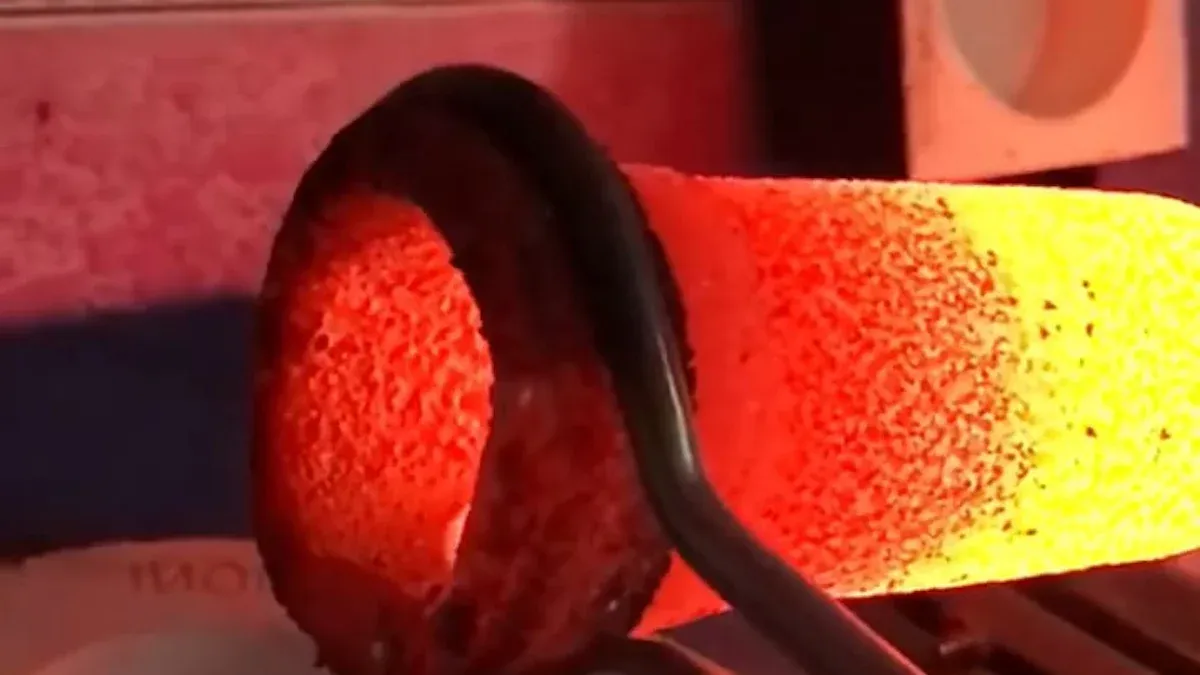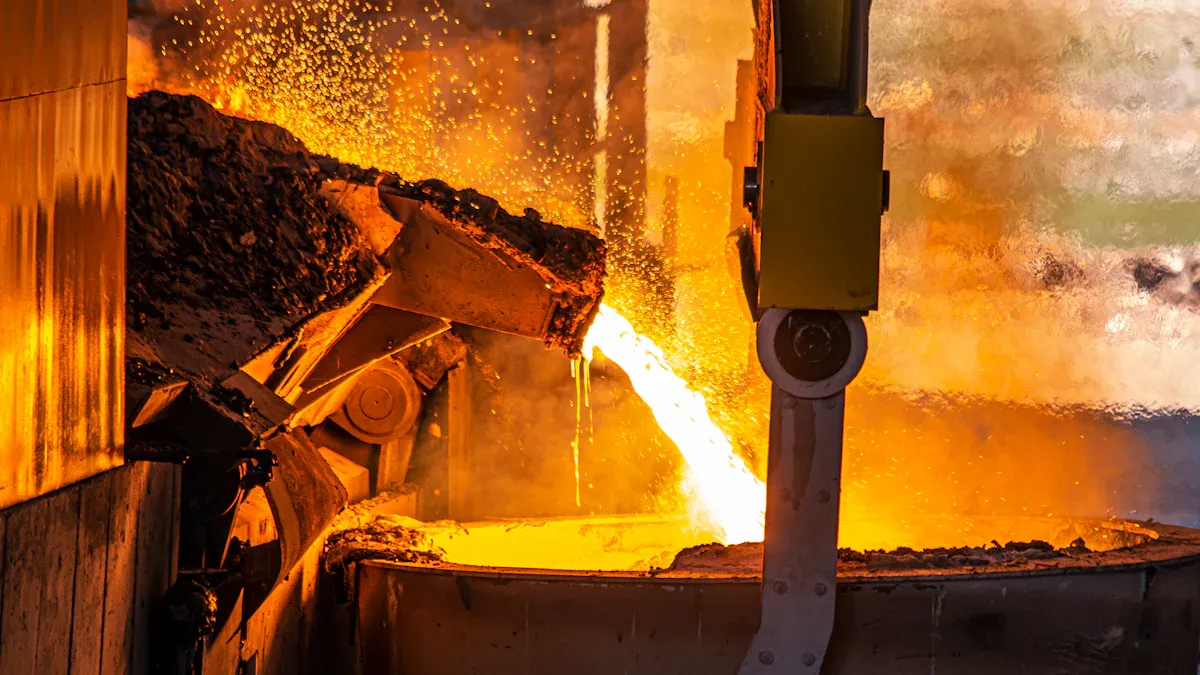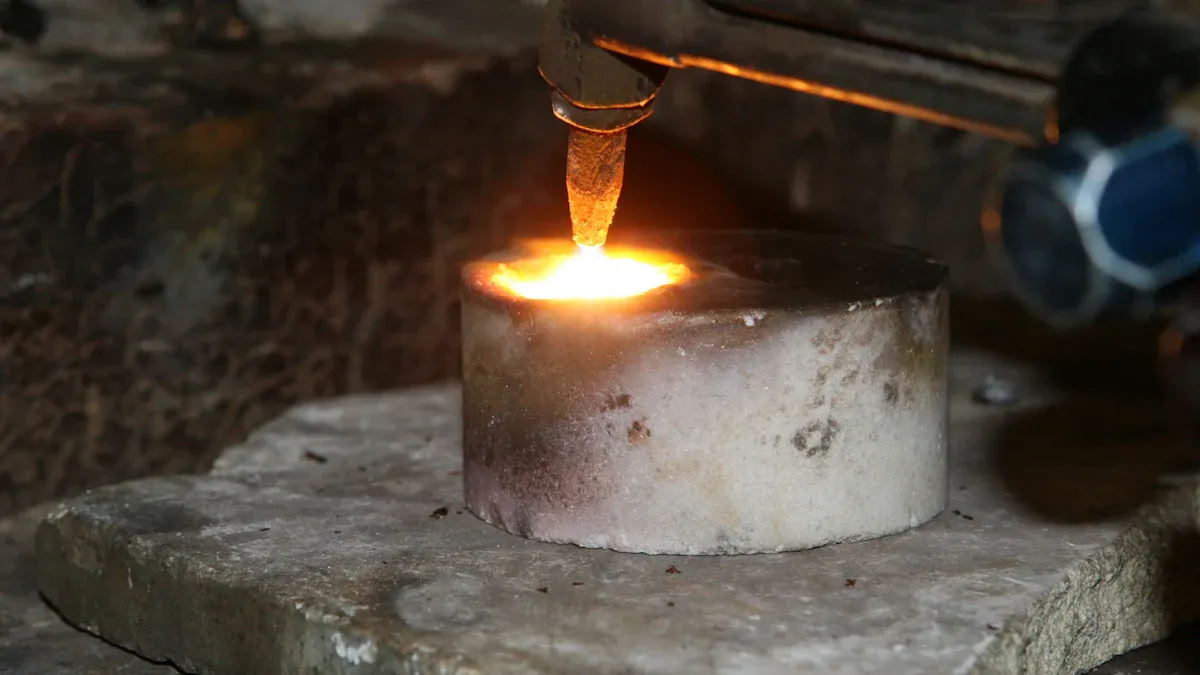
Choosing the right castings for your coal mill plays a vital role in maintaining smooth operations. High-quality resistant castings help you reduce downtime, save costs, and extend the life of your equipment. You need to evaluate several factors to make an informed decision. These include the quality of materials, durability under extreme conditions, and the reliability of the supplier. Paying attention to these aspect s ensures you get castings that deliver consistent performance and withstand wear over time.

High-quality materials form the backbone of durable and efficient coal mill castings. When you select castings made from superior materials, you ensure better performance and reduced maintenance. Materials with excellent structural integrity can withstand the constant grinding and pressure inside a coal mill. This durability minimizes wear and tear, saving you time and money on frequent replacements.
A study highlights the importance of coal's natural composition in industrial applications. It shows that the presence of specific minerals in coal directly impacts its hardness and fracture toughness during milling. These properties are crucial for manufacturing castings that can endure the harsh conditions of coa l mills. By choosing high-quality materials, you enhance the reliability and lifespan of your equipment.
Manufacturers use a variety of materials to produce coal mill castings. Each material offers unique properties suited to specific operational needs. Some of the most common materials include:
High Chromium Iron: Known for its exceptional wear resistance, this material is ideal for environments with high abrasion.
Ni-Hard Alloys: These alloys combine hardness with toughness, making them suitable for heavy-duty applications.
Manganese Steel: This material provides excellent impact resistance, which is essential for handling sudden shocks in coal mills.
When selecting a material, you should consider the specific demands of your coal mill. For example, if your mill operates at high temperatures, you may need a material with superior heat resistance. Understanding these options helps you make an informed decision.
Wear and heat resistance are critical factors in determining the quality of coal mill castings. Materials that resist wear can handle the abrasive nature of coal particles, while heat-resistant materials perform well under high-temperature conditions. To evaluate these properties, manufacturers rely on various tests and analyses.
| Test Method | Description | Relevance to Coal Mill Castings |
|---|---|---|
| Open three-body abrasive wear tests | Simulates conditions similar to those in coal mills | Provides insights into wear mechanisms |
| Wear coefficient analysis | Evaluates the wear rate und er different conditions | Helps in understanding material durability |
| Statistical distribution application | Interprets wear rate data from tests | Correlates lab results with actual mill performance |
These tests provide valuable data on how materials perform under real-world conditions. When you review test results, focus on materials with low wear rates and high heat tolerance. This ensures your castings can handle the demanding environment of a coal mill without compromising efficiency.

When selecting castings for your coal mill, you need to evaluate their lifespan and reliability. Durable castings reduce the frequency of replacements, saving you time and operational costs. A reliable casting performs consi stently under stress, ensuring smooth operations without unexpected failures. To assess these qualities, focus on the material's resistance to wear and its ability to maintain structural integrity over time.
You can also look for castings that have undergone rigorous testing. For example, ultrasonic flaw detection identifies internal defects like cracks or voids that could compromise durability. By choosing castings tested for such flaws, you ensure they meet high standards of reliability.
Coal mills operate in challenging conditions, including high temperatures, abrasive materials, and constant pressure. Castings designed for these environments must withstand these stresses without degrading. Materials like high chromium iron and manganese steel excel in su ch conditions due to their heat and impact resistance.
To ensure optimal performance, consider how the casting material reacts to prolonged exposure to heat and abrasion. For instance, velocity-based testing measures the mechanical strength of cast iron, which is crucial for maintaining performance in harsh environments. Castings that pass these tests are better equipped to handle the demanding conditions of a coal mill.
Certifications and testing standards provide assurance that the castings meet industry requirements. When evaluating castings, check if they have undergone standardized tests to verify the ir quality. Below is a table summarizing some common testing methods used to measure durability:
| Testing Method | Description |
|---|---|
| Ultrasonic Thickness Gauging | Measures wall dimensions of hollow castings, ensuring uniform thickness across complex shapes. |
| Ultrasonic Flaw Detection | Identifies internal discontinuities such as porosity, inclusions, voids, and cracks. |
| Velocity-based Testing | Quantifies graphite nodularity in cast iron, crucial for assessing mechanical strength. |
These tests ensure the castings meet the necessary specifications for durability and performance. When you choose castings with certifications from recognized testing methods, you gain confidence in their ability to perform reliably in your coal mill.
A supplier's reputation speak s volumes about the quality of their products and services. When selecting a supplier for coal mill castings, you should prioritize those with a proven track record. A reputable supplier consistently delivers high-quality castings that meet industry standards. Their reliability ensures you receive products that perform well and last longer.
You can evaluate a supplier's reputation by researching their history in the industry. Look for companies with years of experience in manufacturing castings for coal mills. Suppliers with a long-standing presence often have the expertise to meet your specific needs. Additionally, check if they have worked with well-known clients or industries. This can give you confidence in their ability to deliver quality products.
Certifications and standards are critical indicators of a supplier's commitment to quality. Before making a decision, verify if the supplier adheres to recognized industry standards. Certifications such as ISO 9001 demonstrate that the supplier follows strict quality management practices. These certifications ensure the castings meet the required specifica tions for durability and performance.
Ask the supplier for documentation of their certifications. You can also inquire about the testing methods they use to evaluate their products. Suppliers who openly share this information are more likely to provide reliable and high-quality castings. This step helps you avoid risks associated with substandard products.
Customer reviews offer valuable insights into a supplier's reliability and service quality. Reading reviews from other buyers can help you understand the supplier's strengths and weaknesses. Look for feedback on product quality, delivery times, and customer support. Positive reviews indicate that the supplier consistently meets customer expectations.
In addition to reviews, consider the level of support the supplier offers. A reliable supplier provides excellent customer service, including prompt responses to inquiries and assistance with technical issues. Strong support ensures a smooth purchasing experience and helps you address any challenges that may arise.
When selecting castings, you should focus on long-term value rather than just upfront costs. Cheaper options may seem appealing, but they often lead to higher expenses over time. Low-cost castings may wear out quickly, requiring frequent replacements. This increases downtime and maint enance costs. On the other hand, investing in high-quality castings ensures better durability and performance. These castings last longer and reduce the need for constant repairs. By prioritizing long-term value, you save money and improve operational efficiency.
Low-quality castings can harm your equipment and disrupt operations. These products often fail to meet industry standards, leading to poor performance. To avoid such alternatives, you should carefully evaluate the supplier and the ir products. Look for certifications that prove the castings meet quality requirements. Additionally, request samples or test reports to verify their durability and reliability. Choosing high-quality castings protects your equipment and ensures smooth operations.
Tip: Avoid castings with unusually low prices. They may indicate poor material quality or lack of proper testing.
Negotiating with suppliers can help you get the best value for your investment. Start by researching market prices for the castings you need. This gives you a clear idea of what to expect. When discussing terms, focus on factors like bulk discounts, warranties, and delivery timelines. A good supplier will be open to finding a solution that works for both parties. Building a strong relationship with your supplier can also lead to better deals in the future.
Tailored solutions allow you to address the specific needs of your coal mill. Every mill operates under unique conditions, such as varying temperatures, abrasion levels, and operational loads. Custom-designed castings ensure that your equipment per forms efficiently under these conditions. By working with manufacturers who offer tailored solutions, you can optimize performance and reduce costs.
Industry studies highlight the advantages of customized castings across various applications. For example:
| Industry/Application | Benefits of Tailored Solutions |
|---|---|
| Pulverized Coal Boiler | Improved combustion effi ciency, reduced pollutant emissions, 10% annual fuel cost savings. |
| Blast Furnace Pulverized Coal Injection | Achieves over 85% efficiency in coal powder production, stable operation at 80% output. |
| Coal Chemical Industry | Efficient production of chemical products, reduced grinding costs, and energy consumption. |
| Lime Kiln Coal Powder Preparation | Produces coal powder with particle size < 90 microns, improving quicklime efficiency. |
These examples demonstrate how tailored solutions can enhance efficiency and reduce operational expenses.
Compatibility between castings and your coal mill is essential for seamless operations. Mismatched components can lead to inefficiencies, increased wear, and even equipment failure. To ensure compatibility, you s hould provide detailed specifications to your supplier. This includes dimensions, material requirements, and operational conditions.
You can also request prototypes or samples to test the fit and performance of the castings before committing to a full order. This step helps you avoid costly errors and ensures that the castings integrate perfectly with your existing equipment.
Collaborating with your supplier on custom designs allows you to create castings that meet your exact requirements. Open communication is key to this process. Share detailed information about your operational challenges and goals. A good supplier will use this information to develop innovative solutions tailored to your needs.
Some suppliers offer advanced design tools, such as 3D modeling and simulation software. These tools help you visualize the final product and make adjustments before production begins. By working closely with your supplier, you can ensure that the castings deliver optimal performance and durability.
Selecting the best resistant castings requires careful consideration of mate rial quality, durability, supplier reliability, cost-effectiveness, and customization. These factors ensure your equipment performs efficiently and lasts longer. Prioritizing long-term value over short-term savings helps you reduce downtime and improve operational efficiency.
To make the right choice, research suppliers thoroughly. Request samples to evaluate quality and compatibility. Consult industry experts for guidance tailored to your needs. These steps help you invest in castings that deliver consistent performance and reliability.
Coal mill resistant castings protect equipment from wear and tear caused by grinding coal. They improve efficiency, reduce downtime, and extend the lifespan of your machinery. These castings are essential for maintaining smooth operations in coal mills.
Check for certifications and test results like wear resistance and heat tolerance. Materials such as high chromium iron or manganese steel often provide excellent durability. Request samples or test reports from suppliers to verify quality.
Yes, many suppliers offer customization options. You can provide specifications like dimensions, material preferences, and operational conditions. Custom designs ensure compatibility and optimize performance for your specific coal mill requirements.
A reputable supplier ensures consistent quality and reliable service. They often have experience in the industry and adhere to strict standards. Research their history, certifications, and cust omer reviews to make an informed decision.
Focus on long-term value instead of upfront costs. High-quality castings may cost more initially but reduce maintenance and replacement expenses over time. Avoid low-cost alternatives that compromise durability and performance.